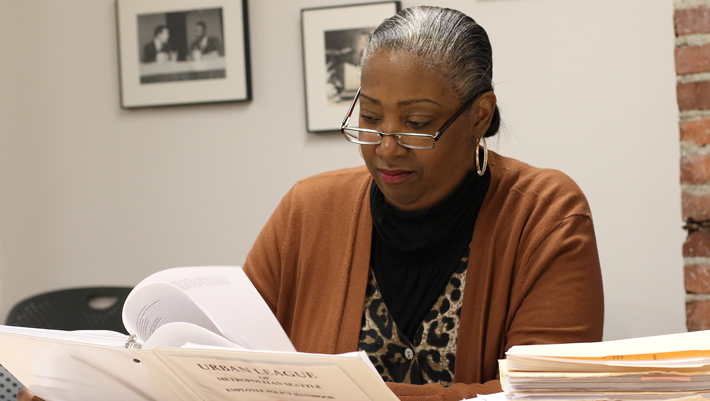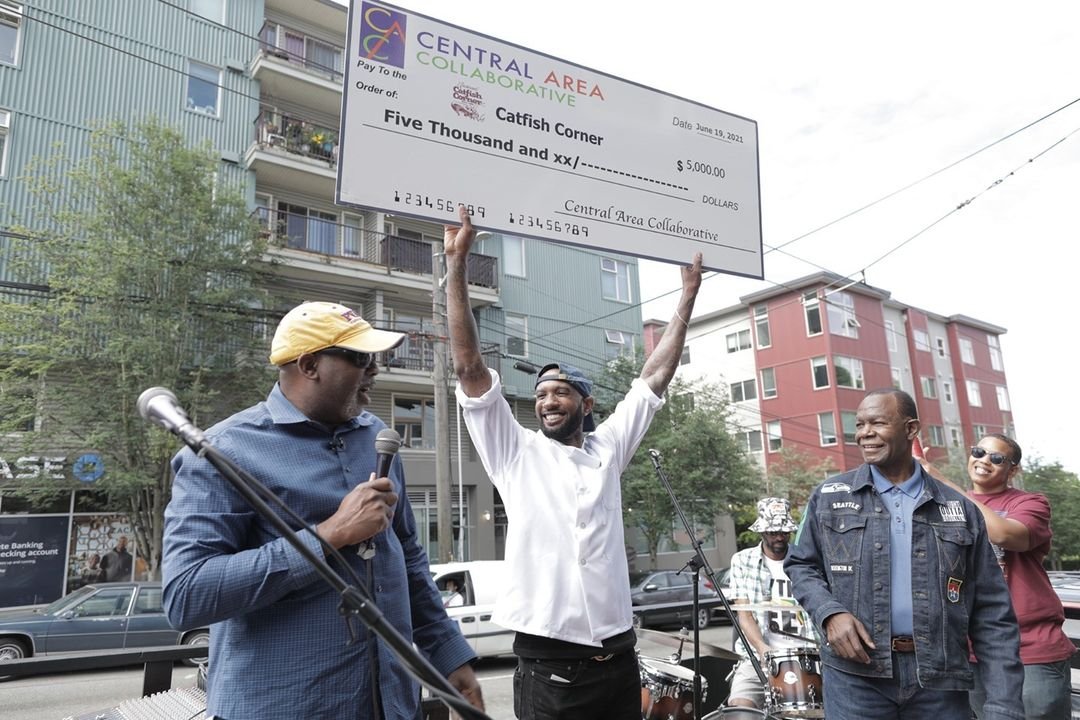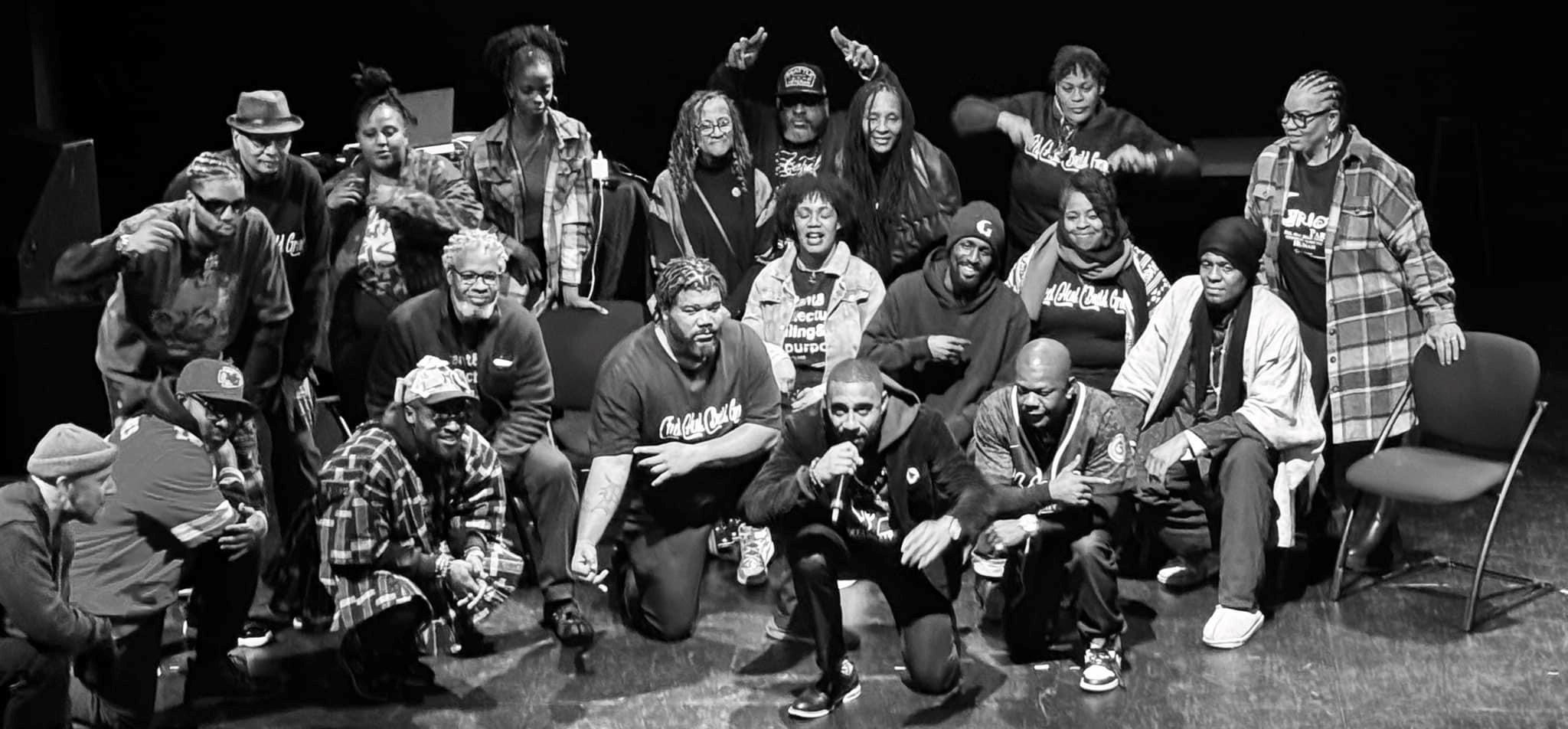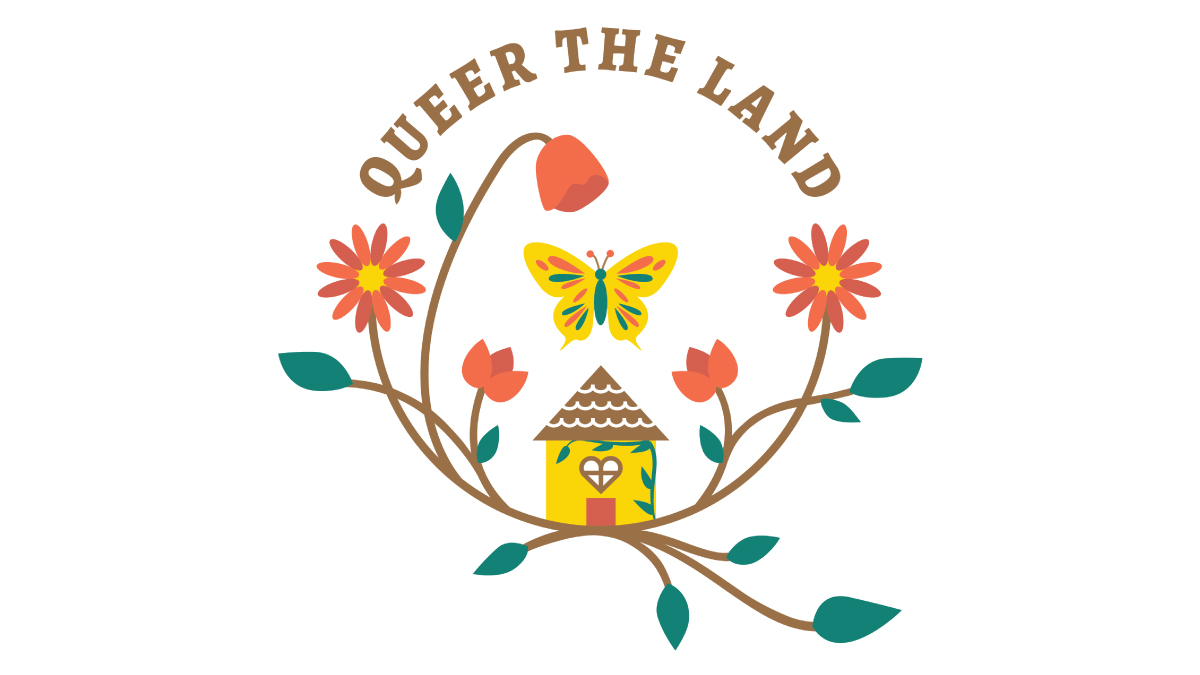
Queer the Land (QTL) is a collective working to directly address the root causes and power structures that marginalize and displace queer, trans, and Two-Spirit Black, Indigenous, people of color (QT2BIPOC). With a focus on land access and housing for the QT2BIPOC community, the collective’s mission is to create a space for affordable transitional and semi-permanent housing anchored by a community center. Recently, QTL acquired a 12-bedroom house in Beacon Hill and are in the process of developing a housing cooperative and gathering space. The acquisition of the house is a long fought organizing victory of primarily Black and brown femmes dedicated to creating a welcoming space for the QT2BIPOC community to put down roots, share resources, and stabilize their mental and physical wellness.
We recently chatted with Queer the Land to learn more about their work and the progress and vision for the Beacon Hill House project. See excerpts from the interview below:
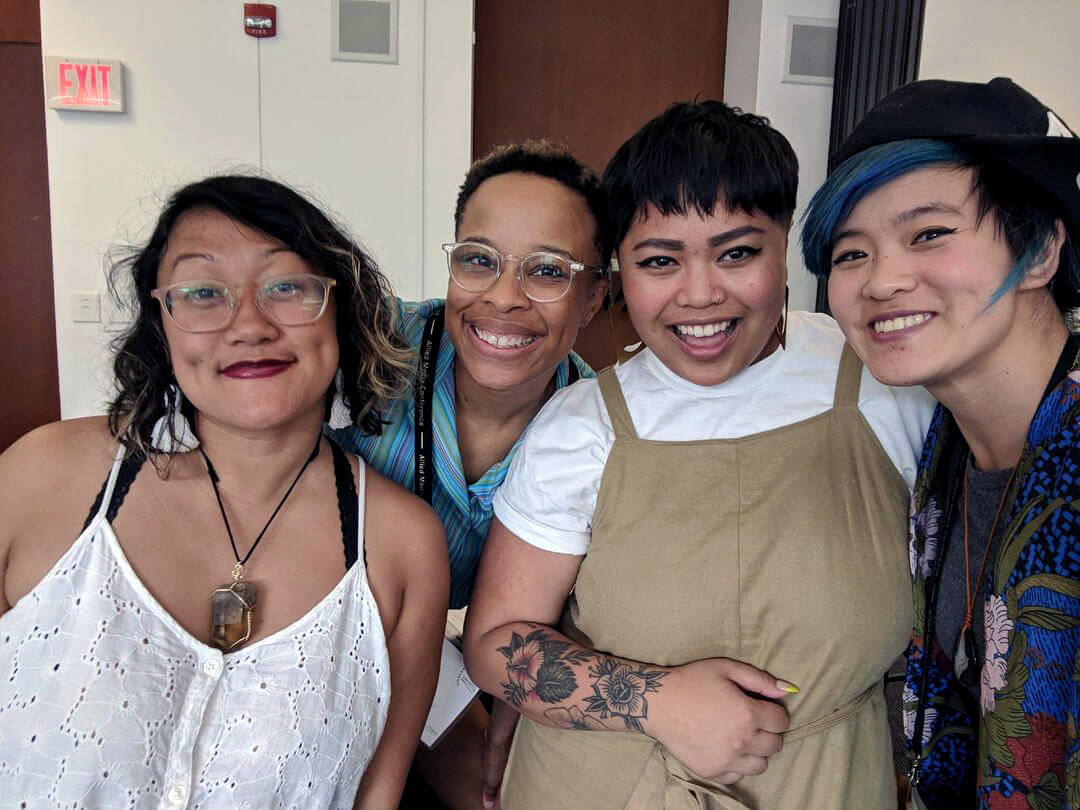
What do you want people to know about Queer the Land?
We are a housing project that started in 2016 by organizers who were tired of being displaced and pushed out of Seattle because of gentrification. We wanted to be closer to jobs, have access to public transportation, not be forced into a food desert, things like that. It’s basically a resistance against displacement. We’re about owning our land and labor, so our whole goal was to buy a house and house our community.
Why is the work you do so important, especially right now?
It’s important to prioritize Black and brown folks because if we don’t who else will? The folks we serve are the most marginalized: People who were formally incarcerated, trans Black women -who are by far the most marginalized, folks who are immigrants, and sex workers. So, by default, most of us won’t have good credit. We won’t have access to housing because we’ve been incarcerated or because we have a record because we did whatever we had to do for survival. Just being a queer person – there are still laws around here that we can be discriminated against, and people aren’t going to get sued or in trouble for it. It’s storytelling, it’s hearing how people are denied access. For so many, mental stability is tied to having a home. So, we have to take care of ourselves and this is something that we have the ability to do.
Can you tell us a bit about your recent acquisition of the Beacon Hill House and the goals and intentions of that project?
The goal is for us to house queer, trans, Black, Indigenous, People of Color (QTBIPOC) folks, but, in addition to that, we want to create a community space. When you think about having a stable place to live, we’ve never had a stable location to meet. We’ve always met at the Hillman [City] Collaboratory, Our House, or Café Avole, so that means we’re not able to plant our feet firmly on the ground. We aren’t able to have access to printing. Since we have a house, we’ll be able to have office space and it will be open for people to use a computer – a tech room – also a recording studio. And more community resources like maybe people want to lay on our couches on the patio, or use the showers that will be available in the community space, or pick food from the garden, herbs from the apothecary, or take food from the pantry. -That’s the community side.
The other side is used for QTBIPOC folks to live at the house, at a really reduced rate and just being able to live because we know that once you have your housing needs met you can build upon that and have stability around your mental and physical health and take care of your overall wellness. We are still in the process of construction right now and just found a queer contractor we are working with.
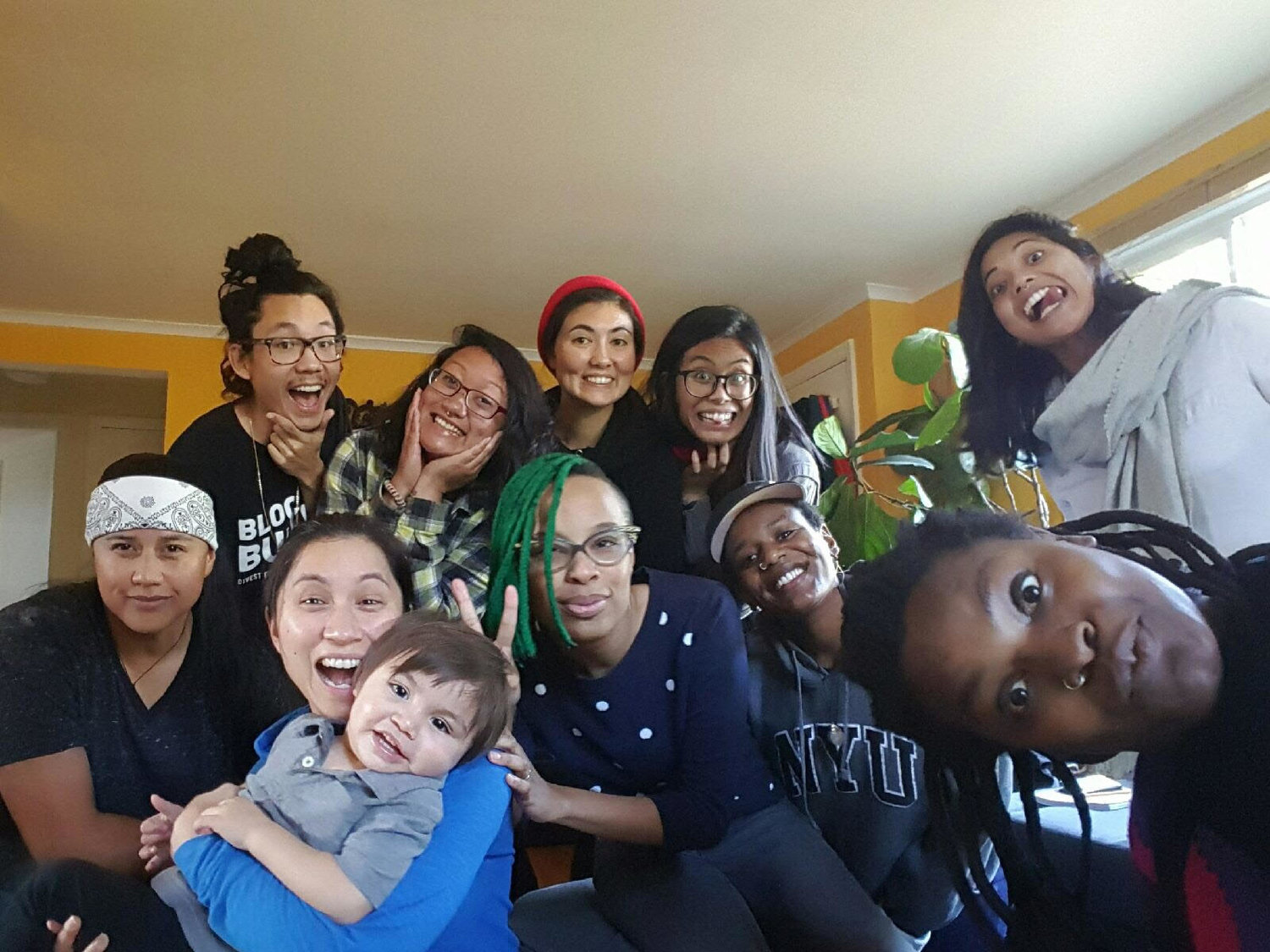
What are some ways people can get involved to support Queer the Land and your mission?
I would say self-education, giving financially, and trying not to insert your feelings to a particular situation thinking that it is applicable. A lot of times people just don’t understand something or can’t relate and that’s why self-education is so important. Also, as we talk about racism, obviously intersectionality is a thing but, what would it look like for you to talk to your homophobic family member? That’s where your true character is. You can put out there that you support things, but your true character is what you do when no one else is looking. I would also say read books, follow local groups and organizations that are doing things in the community. I think people aren’t in touch with who is doing the on-the-ground-work, they are so absorbed with what is happening in main stream media that they have no clue as to what is going on locally. Also, don’t be a bystander. Casual homophobia and transphobia is just as violent as all the other things that are going on. When we see the person attacked on the street, it started because of the casualness of how transphobia is seen in the world and because we always have those drops of micro-aggression and people just casually doing things. How do we stop that? Just nip it in the bud right then and there.
We are a Black and brown collective, but every other month we have our meeting open to everybody. It’s a great time for people to come check out the house, socialize, fellowship in-person and get to know the community in that way.
You can learn more about Queer the Land at their website www.queertheland.org.
